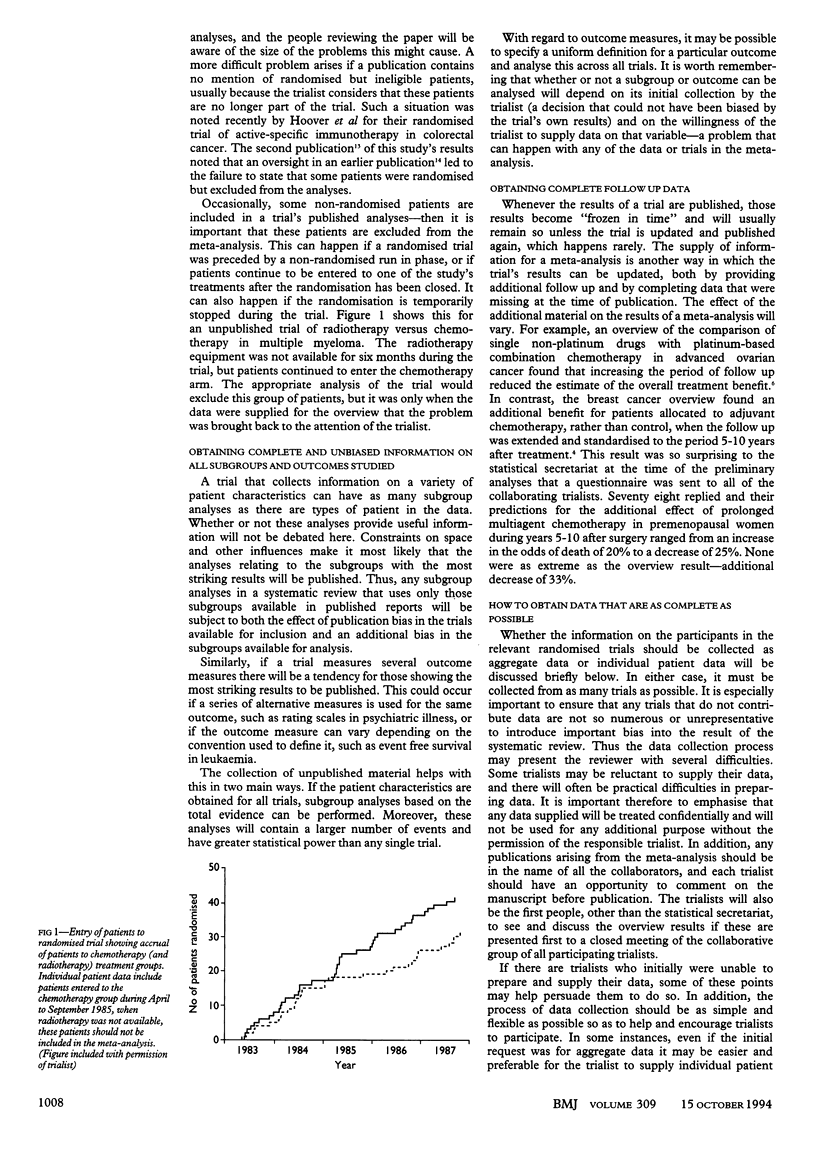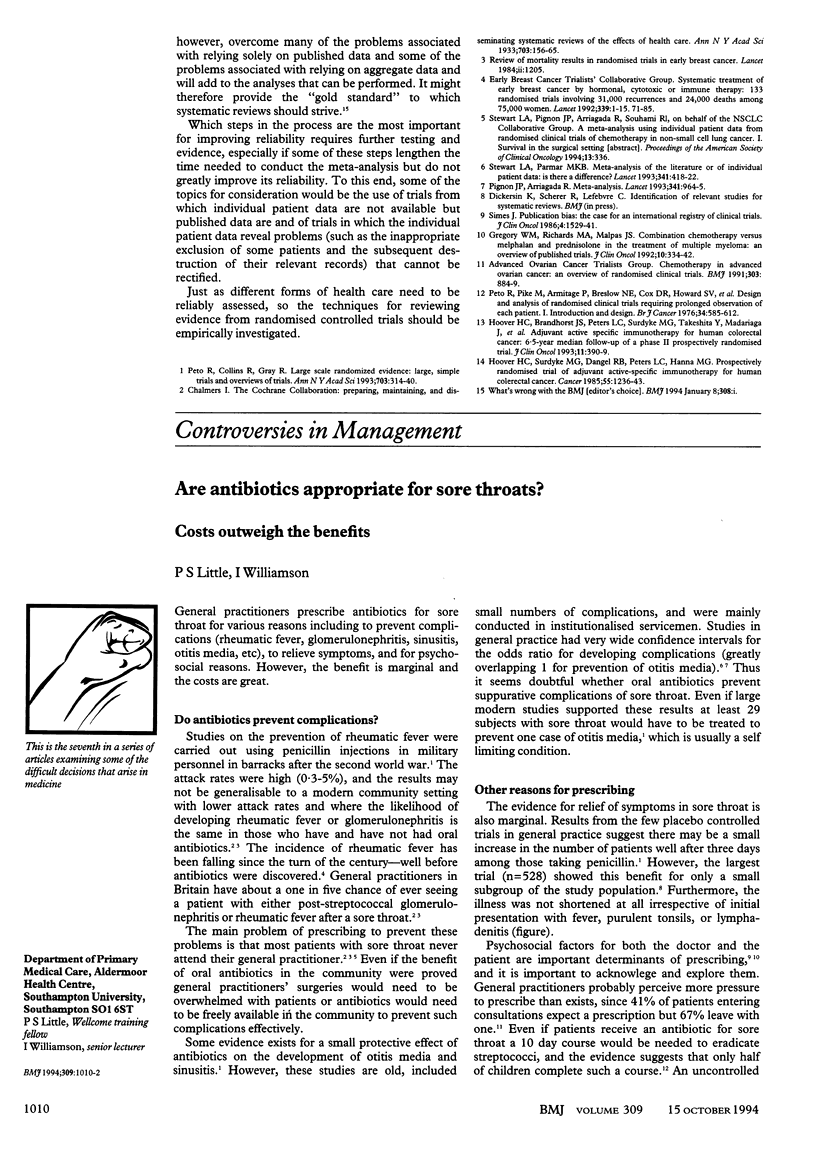Abstract
Many randomised controlled trials compare treatments that will produce only moderate differences in outcome, but these differences can be clinically important. However, they are difficult to assess reliably and require a large amount of randomised evidence. This can be achieved through large prospective randomised trials which will accrue future patients, the meta-analysis of results from randomised trials involving patients from the past, or--ideally--both. The techniques require that all possible biases are minimised, and in meta-analyses this can best be achieved by ensuring that all of the randomised evidence--both trials and participants in those trials--is included. The meta-analysis of individual patient data has been described as the gold standard for this approach. It will remove many of the problems associated with relying solely on published data and some of the problems arising from a reliance on aggregate data, and will also add to the analyses that can be performed. Such projects, however, require considerable time and effort.
Full text
PDF



Selected References
These references are in PubMed. This may not be the complete list of references from this article.
- Chalmers I. The Cochrane collaboration: preparing, maintaining, and disseminating systematic reviews of the effects of health care. Ann N Y Acad Sci. 1993 Dec 31;703:156–165. doi: 10.1111/j.1749-6632.1993.tb26345.x. [DOI] [PubMed] [Google Scholar]
- Gregory W. M., Richards M. A., Malpas J. S. Combination chemotherapy versus melphalan and prednisolone in the treatment of multiple myeloma: an overview of published trials. J Clin Oncol. 1992 Feb;10(2):334–342. doi: 10.1200/JCO.1992.10.2.334. [DOI] [PubMed] [Google Scholar]
- Hoover H. C., Jr, Brandhorst J. S., Peters L. C., Surdyke M. G., Takeshita Y., Madariaga J., Muenz L. R., Hanna M. G., Jr Adjuvant active specific immunotherapy for human colorectal cancer: 6.5-year median follow-up of a phase III prospectively randomized trial. J Clin Oncol. 1993 Mar;11(3):390–399. doi: 10.1200/JCO.1993.11.3.390. [DOI] [PubMed] [Google Scholar]
- Hoover H. C., Jr, Surdyke M. G., Dangel R. B., Peters L. C., Hanna M. G., Jr Prospectively randomized trial of adjuvant active-specific immunotherapy for human colorectal cancer. Cancer. 1985 Mar 15;55(6):1236–1243. doi: 10.1002/1097-0142(19850315)55:6<1236::aid-cncr2820550616>3.0.co;2-#. [DOI] [PubMed] [Google Scholar]
- Peto R., Collins R., Gray R. Large-scale randomized evidence: large, simple trials and overviews of trials. Ann N Y Acad Sci. 1993 Dec 31;703:314–340. doi: 10.1111/j.1749-6632.1993.tb26369.x. [DOI] [PubMed] [Google Scholar]
- Peto R., Pike M. C., Armitage P., Breslow N. E., Cox D. R., Howard S. V., Mantel N., McPherson K., Peto J., Smith P. G. Design and analysis of randomized clinical trials requiring prolonged observation of each patient. I. Introduction and design. Br J Cancer. 1976 Dec;34(6):585–612. doi: 10.1038/bjc.1976.220. [DOI] [PMC free article] [PubMed] [Google Scholar]
- Pignon J. P., Arriagada R. Meta-analysis. Lancet. 1993 Apr 10;341(8850):964–965. [PubMed] [Google Scholar]
- Simes R. J. Publication bias: the case for an international registry of clinical trials. J Clin Oncol. 1986 Oct;4(10):1529–1541. doi: 10.1200/JCO.1986.4.10.1529. [DOI] [PubMed] [Google Scholar]
- Stewart L. A., Parmar M. K. Meta-analysis of the literature or of individual patient data: is there a difference? Lancet. 1993 Feb 13;341(8842):418–422. doi: 10.1016/0140-6736(93)93004-k. [DOI] [PubMed] [Google Scholar]



